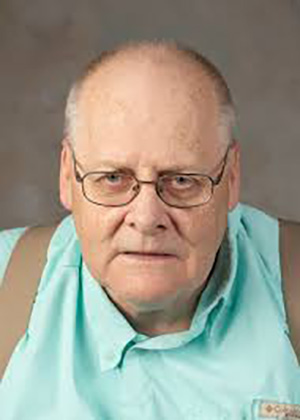By Greg Markley
Today, (Jan. 20, 2021) Joseph R. Biden throws off the -elect from his title and becomes U.S. President. In the audience will be more than a dozen nominees for his Cabinet; if all are confirmed by the Senate, this Cabinet will be the most diverse in American history.
While reflecting on this welcome development, I thought about how diversity played a role in two significant Supreme Court justices’ selections. In 1981 President Reagan nominated Sandra Day O’Connor to the High Court. She would become the first woman justice on the Supreme Court. Her judicial background included four years at a county superior court and less than two years on the Arizona State Court of Appeals.
In 2021, O’Connor likely would have been passed over, because nominees these days almost always have service at a federal appeals court, not just a state one. (But then again Elena Kagan, now a SCOTUS associate justice, had never been a judge before going on the U.S. Supreme Court. But she was a longtime faculty member at Harvard Law School.)
In 1981, finding a woman judge anywhere was tough, so O’Connor was chosen despite having no time on a federal bench. She served for 25 years, was the “critical” judge in many cases, and played an ameliorative role as a moderate conservative in bridging the ideologies. Retired since 2006, she is 90 years old.
Then, in 1991, the first African American on the court, Thurgood Marshall, retired. As the liberal lion Marshall was the only black person on that court, it was informally felt that the seat should be filled by another African American. This was a problem because black justices at the highest levels were rare but surely a suitable one could be found. As George H.W. Bush was president, the search committee had another challenge—getting a black justice who was a Republican. Yet they found their man—Clarence Thomas, age 42, a native of Savannah, Georgia. Thomas had a variety of government and legal service, but just 16 months at the federal level. However, those 16 months were at the U.S. Court of Appeals, DC Circuit. That is the highest profile court, except for “the bigone” itself.
Thomas had a difficult time pursuing the Supreme Court seat. He faced sexual harassment charges but prevailed over them. He was haunted by the fact that many liberal African Americans were insulted that a conservative black was replacing their hero Marshall. But he triumphed and is now the longest serving member on the court, the Senior Associate Justice.
“I’d grown up fearing the lynch mobs of the Ku Klux Klan; as an adult I was starting to wonder if I’d been afraid of the wrong white people all along – where I was being pursued not by bigots in white robes, but by left-wing zealots draped in flowing sanctimony,” Thomas said a few years into his court tenure.
If confirmed by the Senate, the new president’s Cabinet/sub-Cabinet will include 10 women, three African Americans, two Latinos and the first LGBTQ secretary, Pete Buttigieg at the Department of Education. Also, there will be the first African American leader of the Defense Department, Lloyd Austin, an Alabama native who received a master’s degree from Auburn University. Deb Haaland, a former congresswoman, becomes the first Native American Cabinet secretary. It’s amazing that American Indians were here before the rest of us, yet the secretary of the Department of the Interior has never been one of them.
In Georgia on Jan. 5, history was made by two U.S. Senate candidates who had never run for political office. John Ossoff became the first Jewish senator from Georgia, and the youngest senator now serving, at age 33. Rev. Raphael Warnock is the lead preacher at Ebenezer Baptist Church in Atlanta. He is the first African American to serve as a Senator in Peach State history.
Upon taking his Oath today (Jan. 20), Joe Biden becomes the oldest president not only for a first-termer, but overall. Kamala Harris makes history as the first woman vice president. She will also be the highest-ranking female elected official in U.S. history, eclipsing Nancy Pelosi, the House Speaker. She is also the first African American and first Asian American vice president-elect.
“I have just as much right to stay in America – in fact, the black people have contributed more to America than any other race, because our kids have fought here for what was called ‘democracy’; our mothers and fathers were sold and bought here for a price.”
So said civil rights hero Fannie Lou Hamer (1917-1977), of Mississippi. She didn’t live to see all the fruits of her work. But she will be at the Inauguration in spirit. She supports changes because otherwise she would be “sick and tired of being sick and tired” for no reason.
Greg Markley first moved to Lee County in 1996. He has master’s degrees in education and history. He taught politics as an adjunct in Georgia and Alabama. An award-winning writer in the Army and civilian life, he has contributed to the Observer for eight years. He can be reached at gm.markley@charter.net
